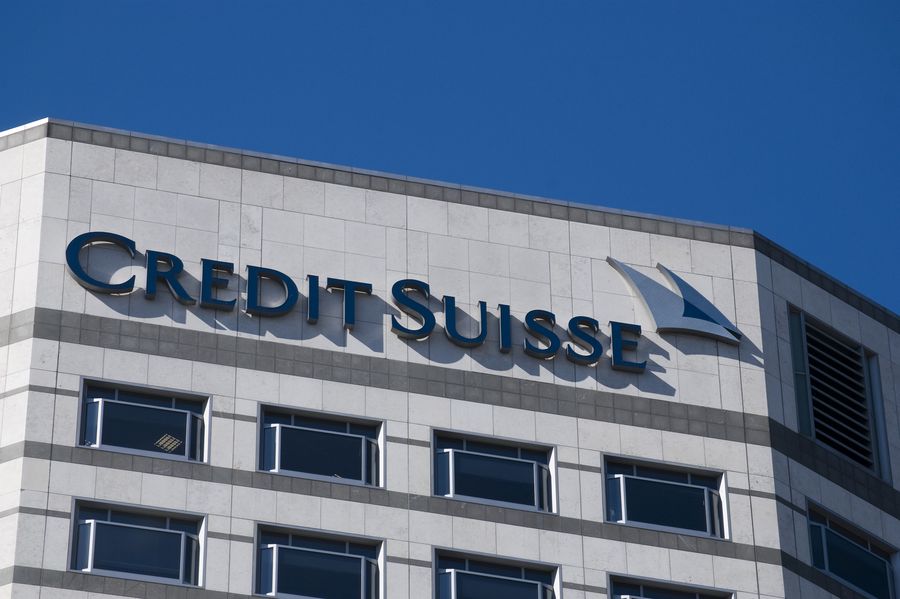
Revenues in Credit Suisse’s corporate bond trading unit sank to a new post-financial crisis low in 2022 as the beleaguered lender continued to scythe back its investment bank, raising questions over how much of the business will remain once the dust has settled.
Global credit products, where the bank trades corporate bonds, derivatives and offers financing to clients, made less than US$300m in revenues in 2022, according to sources familiar with the matter. That’s down from a high of around US$2.4bn in 2012, sources said, underlining how far the bank’s standing in these markets has slipped.
CS said in company earnings on Thursday that revenues in its fixed-income division, which houses credit and other activities, fell 84% in the fourth quarter from the previous year to US$81m as the bank “significantly derisked” its global credit products business. The bank’s fixed-income revenues for the entire year nearly halved to just over US$2bn.
“It really feels like the entire franchise is dwindling,” one industry executive said of the credit business.
CS declined to comment.
The enormous decline in credit trading revenues over the past decade represents a remarkable fall from grace for a business once considered one of the jewels in CS's investment bank. That retrenchment has accelerated considerably following the departure of many senior traders over the past year or so as CS leadership has decided to drastically reshape its investment bank in the wake of some high-profile scandals.
CS's investment bank reported another loss in the fourth quarter, putting it into the red to the tune of US$2.8bn for the whole of 2022. As well as the steep drop in fixed-income revenues, CS also reported a 96% fall in equities in the fourth quarter to just US$15m "driven by the impact of strategic actions" and other factors.
That miserable performance underlines how the fate of credit and CS's other trading activities currently hangs in the balance. Senior CS management is in the process of deciding what to spin off in a new investment bank, led by renowned dealmaker (and former CS board member) Michael Klein, which will revive the Credit Suisse First Boston brand, sources said.
Some of CS’s credit businesses could be hived off into CSFB, sources said, while others may remain in CS, which has said it was keeping its markets business. Other parts of credit trading could be moved into its “non-core unit”, where legacy assets will be run down or offloaded, the sources added.
CS has already struck an agreement to sell some of its securitised products division, another business that historically was an important source of revenues for the investment bank, to Apollo Global Management. Apollo on February 8 launched a new structured finance franchise called Atlas SP Partners that will comprise assets and employees from CS’s securitised products group.
Punching hard
CS’s credit traders were once famous for punching above their weight in areas such as high-yield debt and credit derivatives. But the Swiss lender has sharply reduced headcount over the past year or so, losing many of its top personnel along the way, as it has looked to scale back its investment bank following a series of costly missteps in other businesses.
High-profile departures include co-head of credit trading, Jonathan Moore, who joined Deutsche Bank last year along with a handful of other senior CS credit executives. Hamza Lemssouguer, a star high-yield debt trader, left to start his own fund in 2021, while credit derivatives specialist David Goldenberg joined Barclays later that year.
“Traders are leaving them and clients are leaving them,” said a second industry executive. “But they’ve still got the infrastructure and cost base of a major investment bank.”
Traders note 2022 was a tricky period for banks’ credit desks, many of which struggled as interest rates surged and credit spreads ballooned. Credit trading revenues were down 27% in 2022 from the previous year across the industry, according to data provider Vali Analytics.
Decline and fall
But CS’s revenue slump forms part a broader retreat from the bank in credit trading – a business CS management once identified as one of its most treasured assets. CS said it held a top three market share in global credit products in both its 2012 and 2013 earnings results, noting that this business produced the best return on capital under the Basel III regulations in its entire investment bank.
Such statistics helped global credit products emerge largely intact after various rounds of cuts in the first half of the previous decade, when then chief executive Brady Dougan sought to improve the profitability of CS’s investment bank. But credit trading's standing within CS began to falter shortly after Tidjane Thiam took over as CEO in 2015. The bank reported hefty losses in distressed debt and high-yield around that time and CS subsequently sold large chunks of its distressed business.
“It’s not like this all happened last year,” said a third industry executive. “It’s been a gradual decline.”
The bank’s fixed-income revenues fell in the years that followed before rebounding in 2020 as volatility returned to markets with the onset of the pandemic. But a dramatic overhaul of the investment bank following CS losing US$5.5bn in the collapse of Archegos Capital Management in 2021 raised serious concerns about the future of the broader markets division.
Faced with an increasingly gloomy outlook, many credit traders decided to jump ship rather than take their chances in what looks set to be the most dramatic overhaul of CS’s investment bank to date.
“If First Boston does not take on the whole of global credit products then it will basically be death by a thousand cuts,” the third executive said.